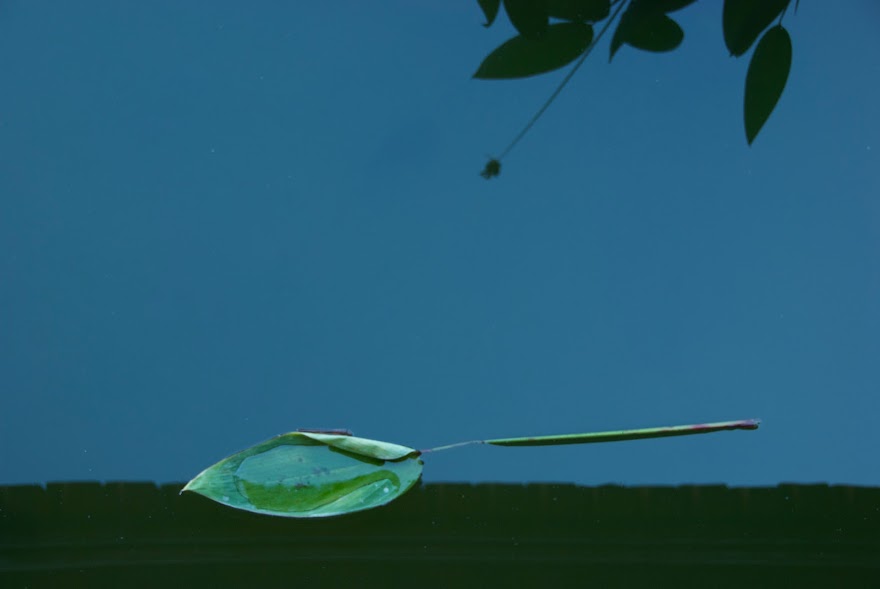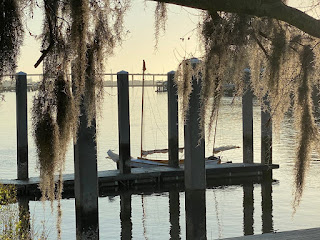I thank Zane for a link to a notice of the death of Les Powles.
https://www.yachthavens.com/lymington-yacht-haven/news/les-powles-1925-2022
I met Les in Papeete, Tahiti, in 1976, as I was near the end of my first circumnavigation and he was part way through his first, heading in the opposite direction.
At the time Les was nearly penniless, having had his boat, SOLITAIRE, broken into at an anchorage in the Caribbean and all the money he had in the world stolen. He found work in Papeete. Enough to keep him going. I, who had more provisions on board than I needed for the final passage from Tahiti to San Diego, gave him a couple of months of food. He made it to Gladstone, Australia, where he found work in a boat yard, and continued onward eventually completing his first of three circumnavigations.
I note that today Les wouldn’t have been permitted into French Polynesia because of regulations imposed in the 1980s requiring visiting sailors to post a bond equal to an air ticket from Papeete to their home country.
We remained in contact though postal mail and then email for several decades. He wrote that I was the first Cape Horner he had ever met—there weren’t many of us back then, and there are still fewer now than those who stand in line every year to summit Everest—only fools call Cape Horn the Everest of the sea—Everest isn’t even the Cape Horn of mountains—and I first turned his mind toward the Horn.
I had not heard from Les now for many years.
When he returned to England after his third circumnavigation Yacht Haven gave him a free slip for life at their marina in Lymington. A very generous offer that enabled Les, living as far as I know only on the UK’s old age pension, to remain on SOLIAIRE.
I wrote about Les, changing his name, in an article, ‘The Seasick Kinkajou and other Stories’, published decades ago in SAIL magazine. You can find the full article on the main site.
https://www.inthepresentsea.com/the_actual_site/The_Seasick_Kinkajou.html
Les may have had a bad beginning, but he persisted, prevailed, and had I hope a good ending.
A Bad Beginning
Gresham’s law states that when two forms of currency are in circulation, the lesser drives the better out of circulation. If, for example, gold coins and paper money are both in use in a given economy, people will hoard the gold and spend the paper. The law is meant to apply to economics, but it seems to me that in many spheres of human activity the lesser drives the better out of circulation.
A commonly accepted list of the greatest living British sailors would include those men and women who are most famous. They are famous not necessarily because of their sailing achievements or because they best exemplify courage and endurance and the other qualities the British like to believe they possess and for which they like to be admired, but because they are best at raising money and obtaining sponsorship and have the loudest PR agents. The English give lip service to the solitary man struggling modestly against the odds, but they don’t honor him much in the flesh. Or rather, his achievements are lost in the din of press releases about the sponsored few. England, of course, is not the only country where this happens. On none of the lists would you find the name of the man I believe exemplifies the finest in the British seafaring tradition. Spencer Griff is so modest he probably wouldn’t even include himself.
Of the English-speaking countries, England has the strongest class system, where class often means simply that several hundred years ago one of your ancestors was a successful brigand. Spencer was not born into the British yachting establishment. He was born into working class Birmingham in the 1920’s. He read books and he dreamed of sailing.
Spencer became a mechanic like his father, working for an automobile manufacturer. During the Second World War he was called into the Royal Air Force to work on airplanes. He married during the war and had two children. In 1970 his wife died. He was almost 50 years old. His children were grown. And he was no closer to sailing the world than he had been as a child dreaming beside the gray Irish Sea. He knew that it was then or never. He quit his job and sold his modest house and rented a barn from a farmer he knew and started to build a boat. He had never sailed in his life.
Spencer was good with tools. He bought plans for a 34’ fiberglass sloop, and two years later SOLITUDE was trucked to Bristol and launched. Spencer had about $1,000 left in the world. He knew that the longer he remained in England, the more money would trickle away, so although it was late February, he set sail for Barbados. He made it--even if he did so on the bounce.
Spencer taught himself celestial navigation, as I did; but I guess that I read more of the book before I left on my first voyage. On the other hand, I do not possess the ability to build a boat and so had more time to read. Spencer would be the first to tell others not to follow his example, both in inexperience in navigation and sailing and in leaving with so little money, although everyone is inexperienced in the beginning, and the only way to learn to sail is by sailing.
When he left England, Spencer had used the sextant once to bring the sun down to the chimneys of Birmingham, and he knew only how to work noon sights for latitude. Before one decries this too much, it should be remembered that most of the great voyages of exploration were made without the ability to do more. And of course, in this age of GPS, many go to sea who can’t even do as much. Sailing to the latitude of Barbados and then due west is not bad seamanship no matter how you find your position. Besides, Spencer planned to read more of the navigation text while under way. He did not count on being so seasick that he could not read, and he did not remember that on March 21 the sun would cross the equator, after which he would have to add rather than subtract, its declination to its altitude to obtain his latitude.
Day after day in late March, the sun moved farther north. Day after day, the error became greater. A more experienced and less seasick navigator would have realized what was wrong. But Spencer thought only that he was being set north by a current. Day after day he compensated for the set by steering south of west.
On the night of April 12, he was thrown from his bunk as SOLITUDE went aground. From the deck it appeared that she had done so in mid-ocean. Land was nowhere to be seen. Gingerly Spencer backed her off under power. Although the night was clear and he remained at the helm, in an hour he was aground again.
For two days and nights, SOLITUDE bounced off one invisible obstruction after another. Spencer could not decide if he had been set too far north of Barbados by the current or had overcompensated and sailed too far south.
Sometime during that terrible ordeal, SOLITUDE hit hard enough to crack her hull. As in many English built boats, SOLITUDE’s bilge pump is operated from the cockpit. Spencer is fair skinned and mostly bald. Working the bilge pump handle for hours beneath the tropical sun in a desperate effort to keep SOLITUDE afloat, Spencer soon suffered from sunstroke. On the third day, he knew he was becoming delirious. When a faint outline of land appeared on the horizon, he steered the sloop toward it even though he believed it to be an hallucination. Only when he felt the keel again touch did he trust his senses.
Spencer has no coherent memories of what happened next. He thinks he recalls some people paddling out to him in a kind of dugout canoe. Then he was in a barn, something like the one in which he had labored for two years creating SOLITUDE, but this one was a maternity hospital in which he was the only male patient. During the daytime bats hung upside down from the roof, but he assumed they were another hallucination. When he had rested enough to know that the bats were real, a man wearing a uniform indicated that he should write where he came from and how he happened to be there.
No one spoke English or any other language that Spencer could recognize. He was given a pencil and some paper, and he wrote how he had made an error in navigation of 50 miles and ended up going aground repeatedly on St. Lucia, as in the quiet of the hospital he concluded he must have done, before finally making it here to Barbados. The uniformed man could not read what Spencer had written, but he smiled and took the report. Everyone smiled at Spencer. Everyone treated him very gently. Everyone acted as though he were mad, which Spencer reflected, he more or less had been when he reached shore.
A week passed before he awoke from an afternoon nap to find a priest sitting beside his bed. The priest said, “How are you feeling, Mr. Griff?”
The English words brought tears to Spencer’s eyes. But he wondered aloud, “How did you know my name?”
The priest lifted some sheets of paper he had been reading. “Your report. The officials brought it to me to translate.”
“Then you know what happened. How I went aground at St. Lucia..” And all the pent-up feelings and words poured out.
The priest listened attentively, if uneasily, to Spencer’s monologue, until finally he interrupted. “Yes. Yes. I’ve read all that. But you have not told me yet how your are feeling now, Mr. Griff.”
“Why I’m fine. Fine. Rested. Fed. But I am a bit worried about my boat.”
“Your boat is fine. The navy towed it to a mooring in the river.” The priest hesitated for a moment. “I don’t want to upset you, Mr. Griff, but there is something you should know. You are not in Barbados.”
“No?”
“No. And you did not run aground on St. Lucia.”
“No?”
“No. You went aground on the Amazon delta. You are in Brazil.”
Missing your first landfall by a thousand miles would have stopped most sailors, but Spencer kept on. He diligently studied the navigation text before he left Brazil. He managed to find work at boatyards along the way, and he made it back to England a little more than three years from the wintry day he had sailed from Bristol. A year after his return, he set off again. This time he made an epic voyage nonstop via the great capes. I think he was the first man to complete solo circumnavigations in both directions.
Monetarily, Spencer Griff is a poor man. He is in England now, working at a boatyard, trying to save enough to make another voyage--if not all the way around a third time, he hopes at least to escape to someplace warm.
Many obvious lessons could be drawn from Spencer Griff, among them that if you teach yourself seamanship, you had better have a good teacher; and that perseverance can take you a long way. But I think his experience also says something about the nature of fame and fortune. I think Spencer quietly wanted them both, that he hoped for the wealth that has followed a few well-publicized voyages and that he longed for acceptance by an establishment from which he had been excluded by birth. If you seek fame and fortune now--and perhaps it was ever thus--the first thing you need is not to be a good sailor; I can name at least two world-famous “sailors” who are barely competent. The first thing you need is a PR man. The second is a newspaper or television contract. And the third is a radio transmitter so you can keep in touch with the first two.
Spencer Griff’s achievements are greater than those of many people who have found fame. He is the better driven out of circulation by the lesser, the genuine overshadowed by the strident. To me Spencer Griff is England’s greatest living sailor, although he would be embarrassed to hear me say so. In our day he is too modest for his own good.















